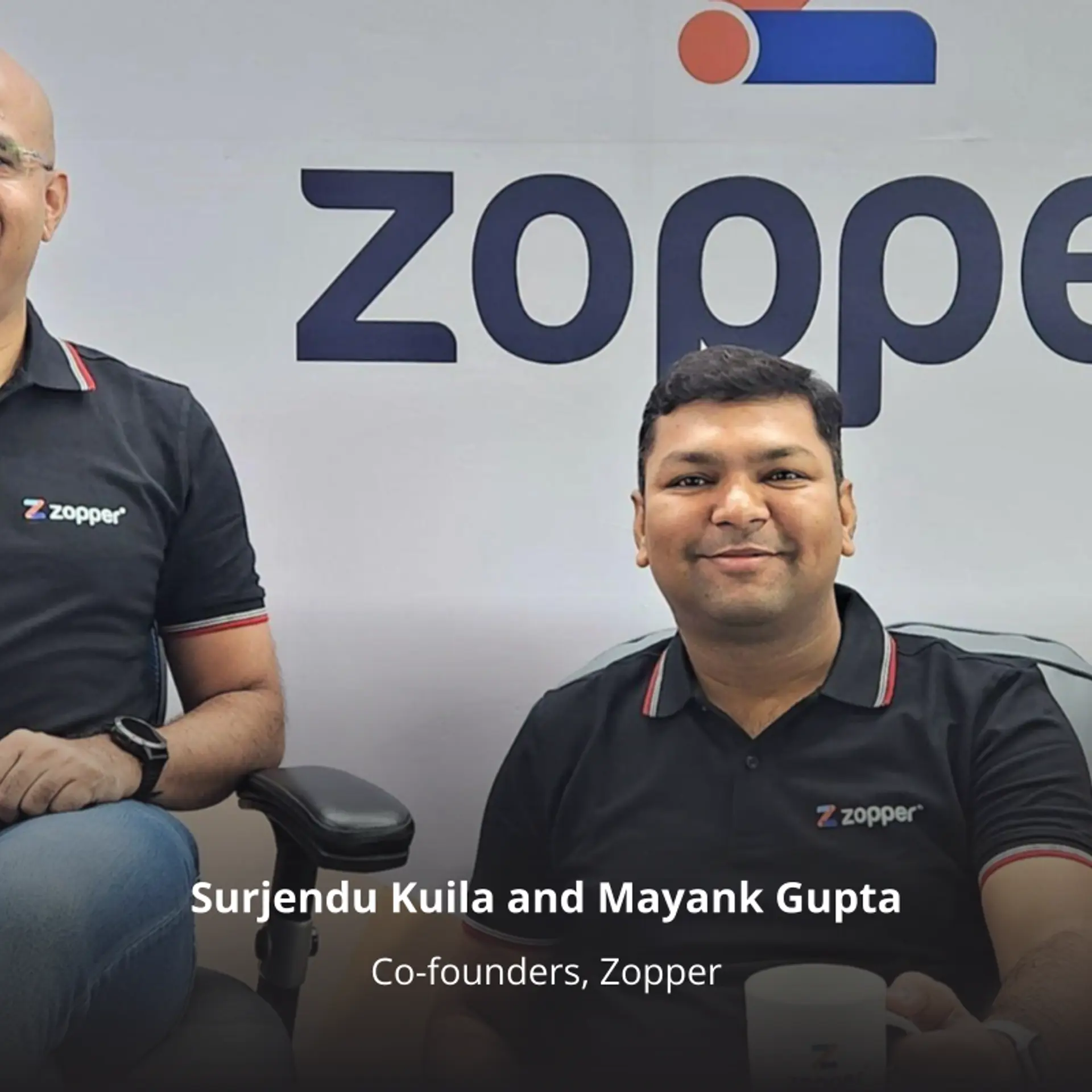
Qualcomm
View Brand PublisherHow QDIC-supported startups are stepping up their technological edge to help the country battle the current pandemic
TagBox Solutions, BlackFrog Technologies, Artelus, Biodesign Innovation Labs, Dozee and Detect Technologies – six startups that have been part of QDIC over the years – have developed interesting solutions to address the multi-faceted challenges brought about by COVID-19.
Today, the government, corporations, startups, non-profits, and individuals, are all at work, fighting the pandemic on different fronts. Some are filling gaps that were so far left unattended, leveraging their expertise to devise solutions, innovating and pivoting their current solutions to combat the coronavirus. Many are on the frontlines. Their goal is the same - to save lives and cope with the aftermath of the outbreak.
Here’s a roundup of the efforts by six startups that have been part of the Qualcomm Design in India Challenge over the years. While Solutions and Artelus have designed solutions in the area of identification and tracking, , Technologies, and , have developed assistive equipment and devices. Deeptech startup, Detect Technologies has developed a solution in the area of crowd monitoring and governance.
An automated personnel and supply chain safety solution by TagBox
Seeing the multi-fold impact of the nationwide lockdown, TagBox, a supply chain solutions company, realised that the bigger challenge for many of the companies would be to monitor and control the Covid-19 threat once the workforce staggers back in after their business resumes full operations.
To address this challenge, TagBox quickly worked on an automated Personnel and Supply Chain safety solution. The solution enables companies to enforce, maintain and manage social distancing within the workplace and also downstream partners and customers. It also helps in easy identification of specific high-risk ‘quarantine sets’ of people/equipment/assets and ‘sanitisation zones within facilities. In addition, the solution also enables companies to monitor facility-zone compliance so that personnel stay within their designated areas and reduce unnecessary interactions, maintain a digital record of body temperature and mask compliance of every personnel.
Adarsh Kumar, Co-founder and CEO, explains “While the core of the solution enables social distancing and contact tracing, additional benefits include equipment and asset availability and utilisation monitoring; traceability in-facility and in-transit; condition monitoring of products and reducing inefficiencies in loading/unloading time. This would minimise operations down-time and enhance productivity - a much-needed aspect in the imminent economic turbulence.”
The personnel and supply chain safety solution has witnessed a lot of traction in the last few days. “We have received initial validation from multiple companies and stakeholders that it is a much needed, cost-effective, easily deployable and scalable solution. We believe companies are going to gain significantly from this solution in terms of managing employee safety, reducing down-time and enhancing productivity,” says Adarsh. Given the global nature of the pandemic, the startup is also evaluating to take its COVID-related solution to other geographies and help global organisations in battling the aftereffects of the pandemic.
An AI powered Covid-19 X-ray reading software by Artelus
Having made significant progress in their work on leveraging Artificial Intelligence (AI) to read and detect Pneumonia from TB, Artelus, a deep-tech startup solving healthcare challenges, knew its algorithms could identify COVID pneumonia with a high degree of sensitivity.
With the rising numbers of COVID-19 cases, there was a realisation that the 15,000 practicing radiologists in the country would be under tremendous pressure. In addition, a patient would need to take at least 10 X-rays during the treatment process to monitor the progress, which would again lead to a massive surge in the number of X-ray images to be read by radiologists. Realising the challenge at hand, Artelus quickly re-tasked its entire workforce to launch a AI- powered Covid-19 X-ray reading software.
“AI is an efficient way of reading X-rays in a timely manner without burdening the radiologists and pulmonologists. The software that has been designed provides very crucial insight into pre-existing conditions like pneumonia and TB to administer the right treatment. The accuracy is comparable to radiologists.” says Mrinal Haloi, Co-founder and CTO. In addition, the solution can also provide progression indicators to doctors thereby enabling better treatment. In addition, the solution is also available offline on a chip that can be connected to any X-ray machine and computer for AI readings, thereby enabling ease of use even in areas where the internet connectivity is poor.
The startup is awaiting approvals from regulatory bodies in various countries like UAE, South Africa Indonesia in addition to India.
“Once approved, our solution will play a crucial role in serial reading of Covid cases (X-rays of the lungs) and monitor progress or lack thereof and help doctors adjust their treatment plans,” says RajaRajalakshmi, Co-founder and Chief Data Scientist.

X-ray of a COVID-19 patient
A portable medical-grade refrigerator for the last-mile transport of biologicals and vaccines by BlackFrog Technologies
When the first false-negative case came up in New Delhi, there were speculations of improper sample-collection and handling, points out Mayur U Shetty, CEO & Product Architect, BlackFrog Technologies. “The commonly used chilled transport media like the ice boxes are often unreliable due to human error during freezing of ice/gel packs, leading to the risk of compromised testing resulting from specimen drying, contamination or degradation. Something that can have a far-reaching effect in today’s times, given that the WHO states that the virus specimens should be stored and transported at 2-8 degrees Celsius if they were to reach the laboratory in less than 72 hours.”
Given that the Manipal-based tech startup had developed Emvólio, a portable medical-grade refrigerator for the last-mile transport of blood, vaccines, serums and other biologicals that demand strict cold chain practices, it reached out to offer the devices to the Government District Hospital in Karnataka’s Udupi district for the transport of COVID-19 specimens from the peripheral collection facilities on a pilot basis.
“The hospital staff found its utility extremely valuable. They have requested an additional three units of Emvólio for its kiosk-based collection centres so that they may even plug-in our product and use it as a stand-alone refrigerator for static storage of the samples until they are dispatched,” shares Ashlesh Bhat, CTO.
Emvólio has a patented rapid-cooling technology that ensures temperature stabilisation to safe-limits over 96 percent faster than ice-based technologies, during temperature excursions.

Portable medical-grade refrigerator by BlackFrog Technologies
Having previously used Blackfrog’s devices for routine vaccine delivery as part of one of SELCO Foundation’s outreach programmes, BlackFrog has now dispatched a unit for use in their solar-powered hospital in Tamil Nadu. SELCO Foundation has requested for more units for deployment in Kerala and Sikkim. “We're now exploring applications in the Indian Railways as well for the ones that have been converted into mobile health-centers,” shares Mayur.
For BlackFrog, the current crisis provided the opportunity to jump in and help the ecosystem that has helped them grow. “While we believe startup growth and revenues are important, what is a bigger priority now is to join hands in battling the pandemic. The Government of India has supported and funded us in the past. We believe now it’s our turn to give back,” shares Donson D Souza, COO.
A low-cost portable ventilator by Biodesign Innovation Labs
Today, the world desperately needs ventilators to handle the public health emergency brought about by COVID 19 Pandemic crisis. And, pitching in to bridge the shortage of ventilators is Biodesign Innovation Labs. Having designed a low-cost portable ventilator called RespirAID, the team believed that the device would play a critical role in stabilising the patients from respiratory arrest, ARDS, severe pneumonia due to COVID and associated co-morbidities. RespirAID has been designed for emergency use cases. It can also be used for patients in transit in ambulances. The device will help to keep the patient stable until high-end ventilators become available at the hospital,” shares Gautham Pasupuleti CEO & Managing Director
The overwhelming response that the startup has received shows the relevance and significance of a solution like RespirAID.
“We have been working for more than 18 hours a day without a break to be able to meet the market demand. We have collaborated with a Bengaluru-based ISO 13485 medical device company that has produced multiple FDA products to mass manufacture the RespirAID devices,” says Gautham.
The team is also in talks with multiple other large-scale firms for large scale manufacturing. The startup is aiming to manufacture 50,000+ RespirAID devices to deploy it across hospitals in India and contribute to the common goals of saving lives during this need of the hour.

RespirAID, a low-cost portable ventilator by Biodesign Innovation Labs
Reflecting on the startup’s journey, Gautham shares, “We have been on a mission to save lives especially during emergencies. And, that mission transpired into products such as RespirAID and ResPAP - a respiratory support device for providing continuous positive airway pressure oxygen therapy for children with respiratory distress. Today, we continue to remain focused on that mission while also creating social impact with innovation and medical technologies and building life-saving innovations.”
A contactless health monitor for hospital settings by Dozee
Helping thousands of people in India keep a track of their health daily at the comfort of their homes is Dozee, a contactless health monitor that tracks vital health parameters like heart rate, respiration, sleep, and stress levels throughout the night. With medical-grade accuracy. Dozee enables people to get hospital-like care at home. In addition, Dozee's AI engine scans for illnesses and flag any health anomalies in advances and also enables the users to connect with its database of doctors for online consultation
With COVID, the startup knew Dozee would play an important role for patients,especially with lifestyle diseases to keep a track of their health without having to step into the hospitals. But, at the same time, there was a realisation that Dozee could be optimised for a hospital setting to enable better healthcare monitoring of COVID patients while also reducing exposure of the healthcare staff to COVID infected patients.
Mudit Dandwate, CEO and Co-founder, says, “We realised that in addition to the parameters that Dozee was tracking, it was important for healthcare workers to be updated on oxygen saturation, BP and temperature - parameters that are usually tracked via external devices. While being part of Qualcomm Design in India Challenge, we had developed capabilities to integrate other devices. So we were able to quickly productise this capability. With integration and solving last-mile operational challenges, Dozee was enabled to integrate with SpO2 and BP machines. We are now working to add temperature sensors so that doctors and healthcare staff have all the information they need in real-time. In addition, this would drastically bring down the exposure to patients for the healthcare stuff sans compromise.”

A contactless health monitor by Dozee
Adding these new capabilities saw Dozee being deployed in hospital settings in Madhya Pradesh and Rajasthan. The team is also in talks with the Ministry of Ayush to deploy Dozee in home settings to monitor and track the progress of patients who have been discharged.
Actionable insights from drone data and algorithms from fixed cameras for effective governance w.r.t. COVID-19 by Detect Technology
In the advent of COVID-19, Detect Technologies has extended the capabilities of one of its key solutions – Noctua, an AI-enabled platform that can take inputs from various devices, including drone feeds of large sizes and miniaturise it into few snippets that convey actionable insights. The team has developed Noctua - M, a platform that has been designed specifically with intelligent algorithms for automatic detection of unregulated crowds, social distancing and real-time tracking of mask usage. This aggregated data, along with existing insights from the Health ministry such as the number of active cases in the region, helps the police focus action in the right areas.
Explaining the relevance of Noctua- M, Daniel Raj David, Co‐founder and CEO, says “A drone with a camera throws up an immense amount of data. This makes it extremely challenging for personnel or law enforcement agencies to act. The authorities would always have to look at multiple screens from drones and cameras. Without actionable insights, deployment of just drones can have minimal impact.”
The solution has been deployed in Nellore in Andhra Pradesh for about a month and the impact can be seen from the fact that the number of active cases has gone from 111 to 30. The team has also worked on a novel technology based on GSM (Sim card) integration with a loudspeaker which is then mounted on a drone along with live surveillance using a high-resolution camera. “It grants the ability to cover large distances and communicate/relay live messages remotely through the drone.”

Detect Technology's drone on COVID19 duty
These novel approaches have not only helped in law and order implementation but are also being explored to closely monitor high-risk areas and segregate them from other low-risk areas. It can further be used to identify people in need and the appropriate help can be provided to them, the startup believes. “Noctua-M’s relevance is not limited to governance alone. It can also aid corporates or manufacturing shop floors w.r.t. social distancing, PPE monitoring, temperature monitoring, manpower monitoring etc.,” says Daniel.







